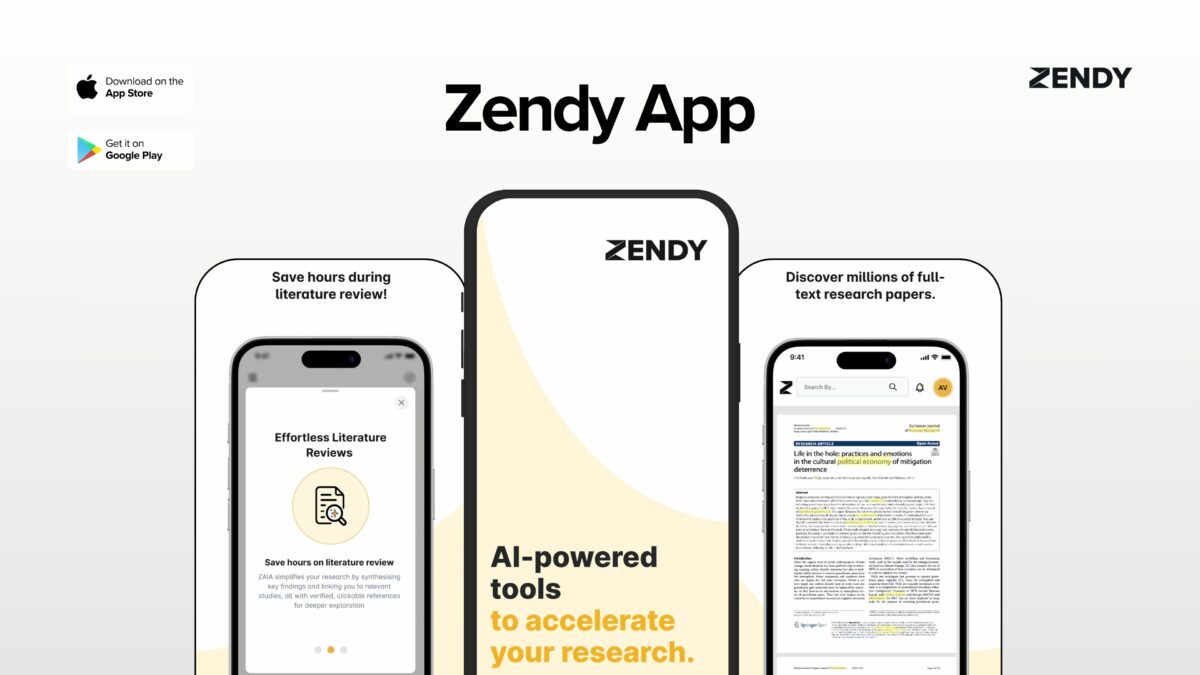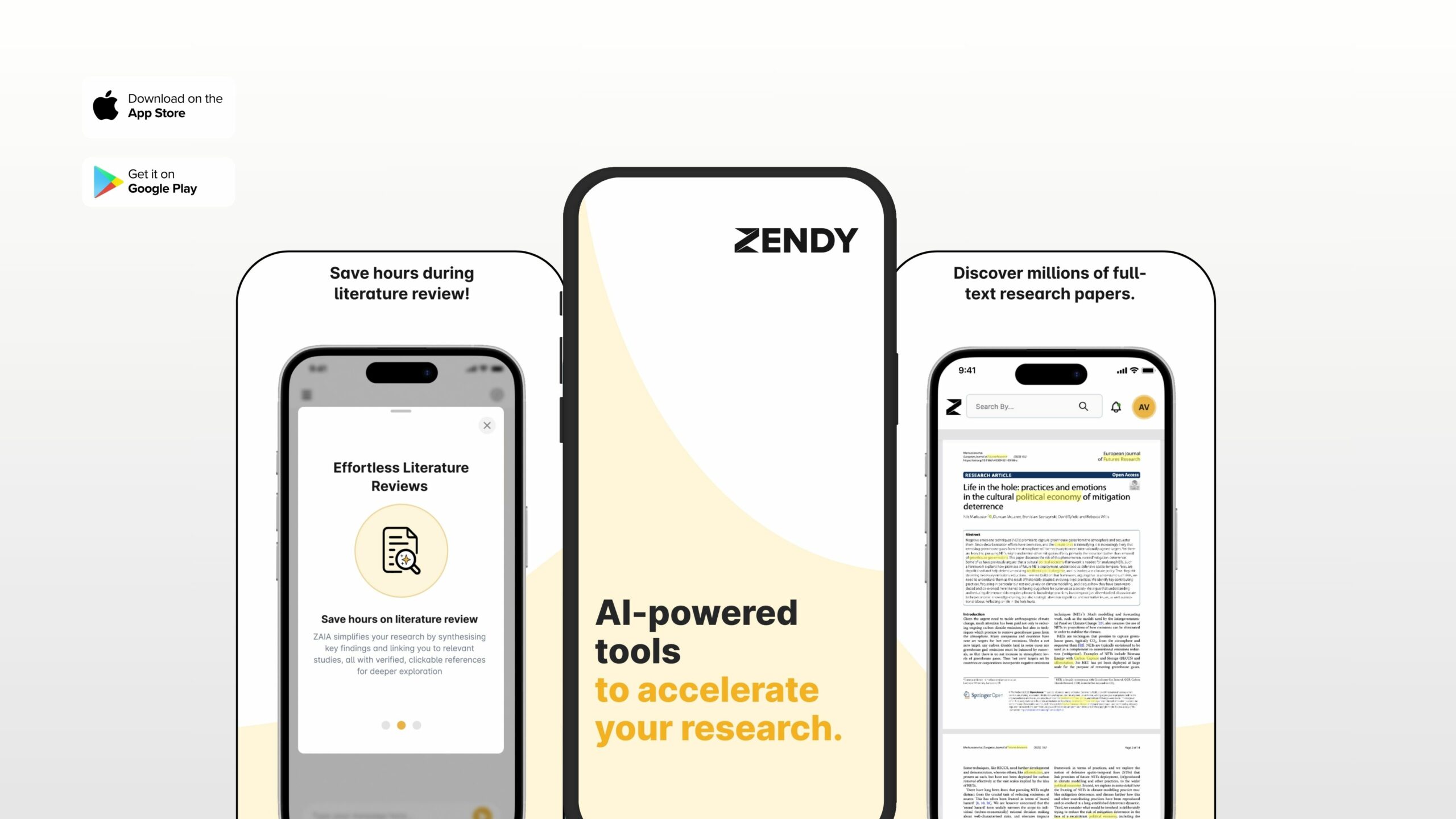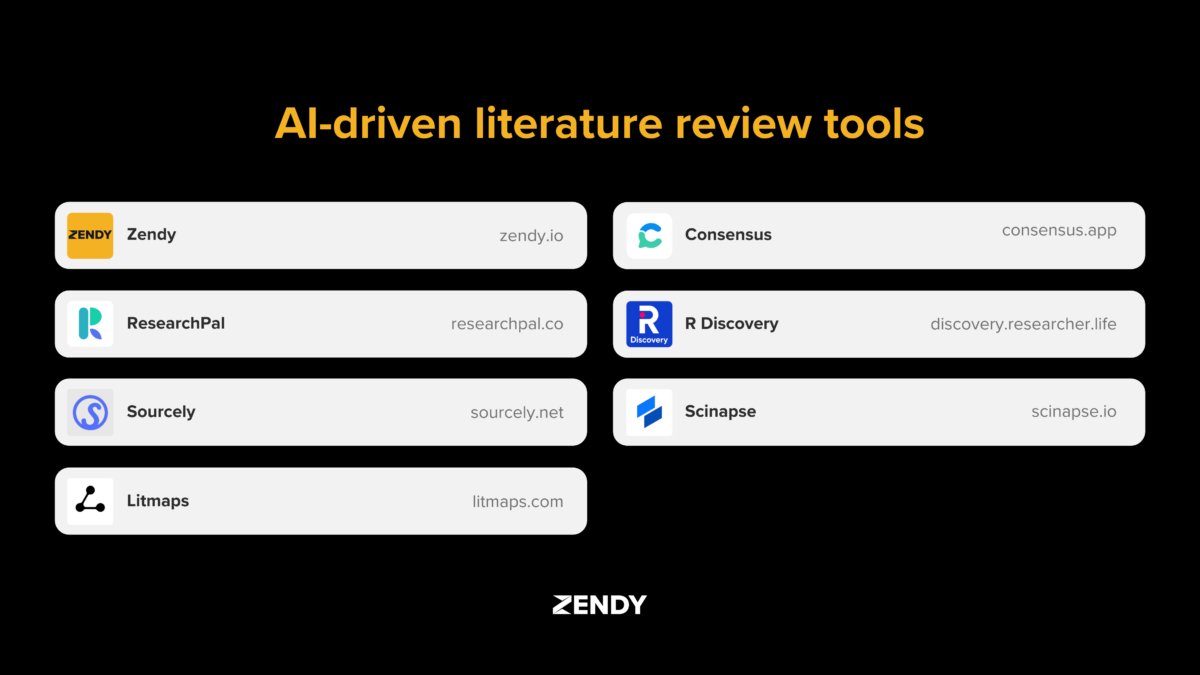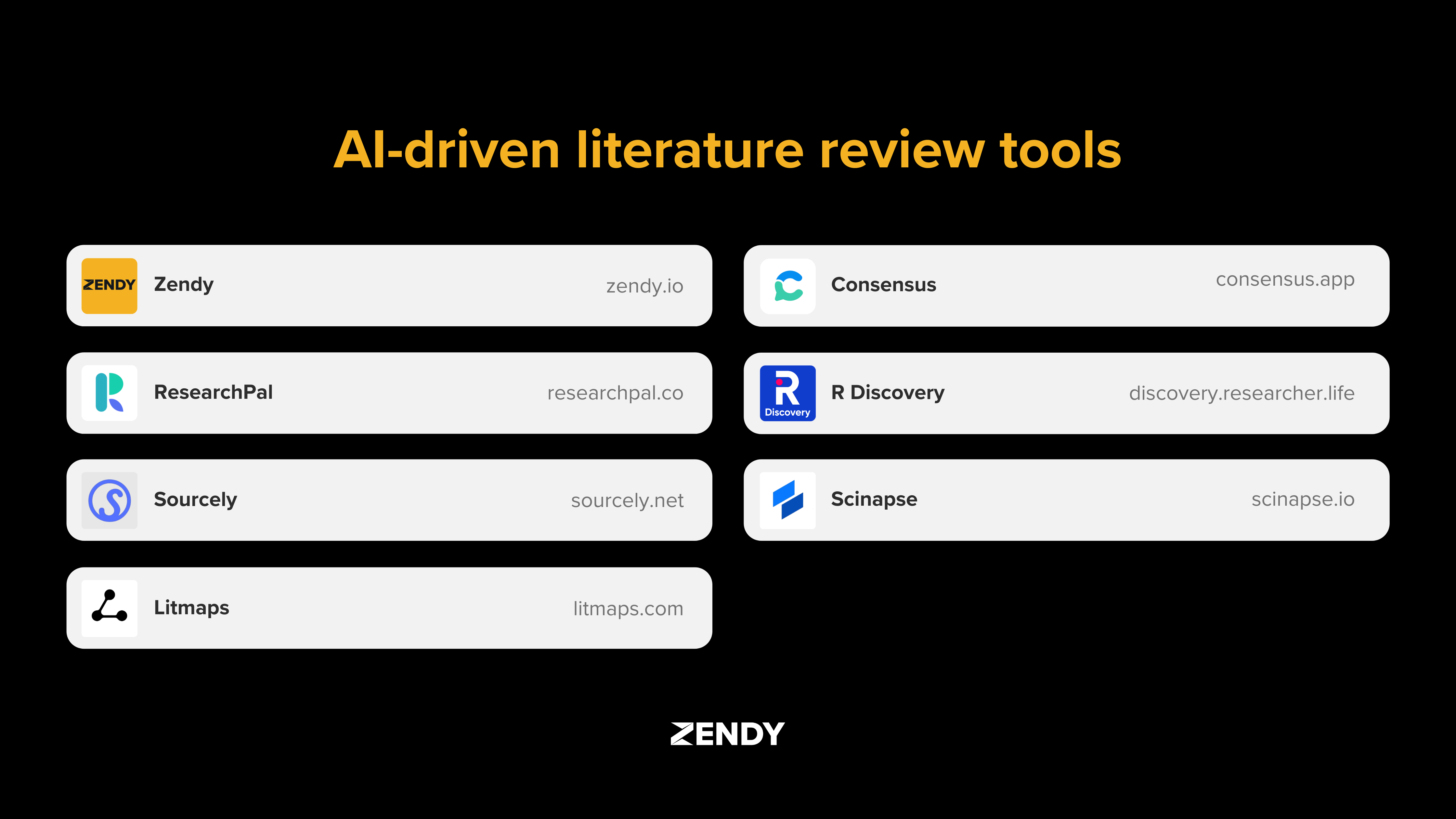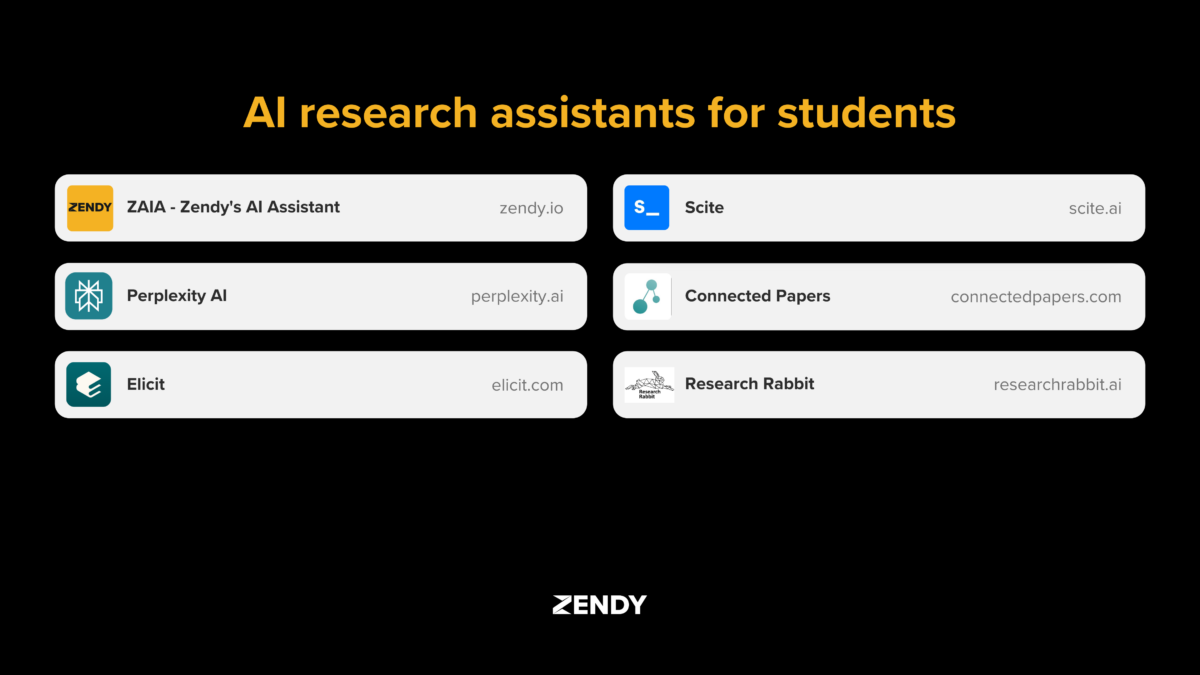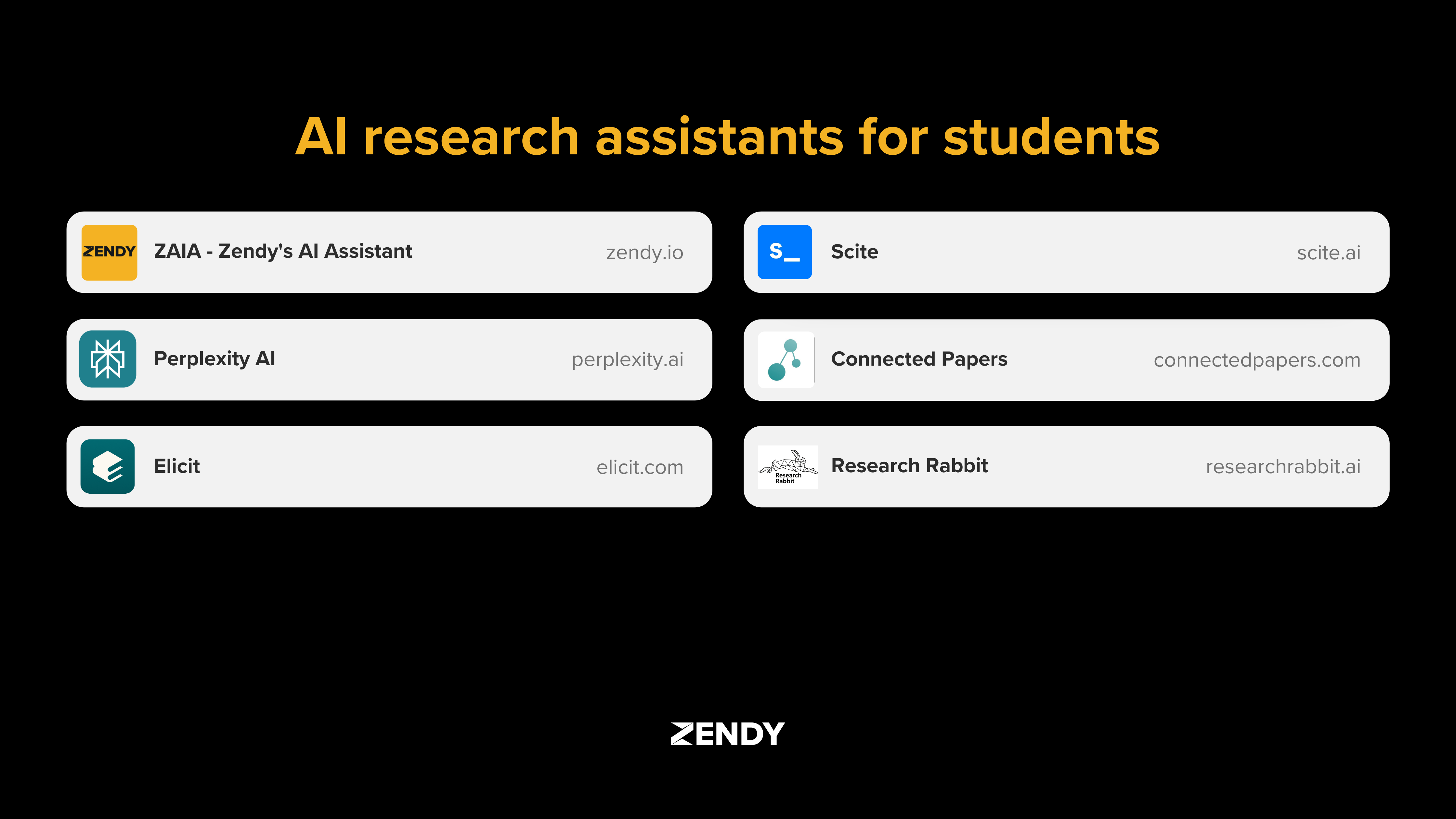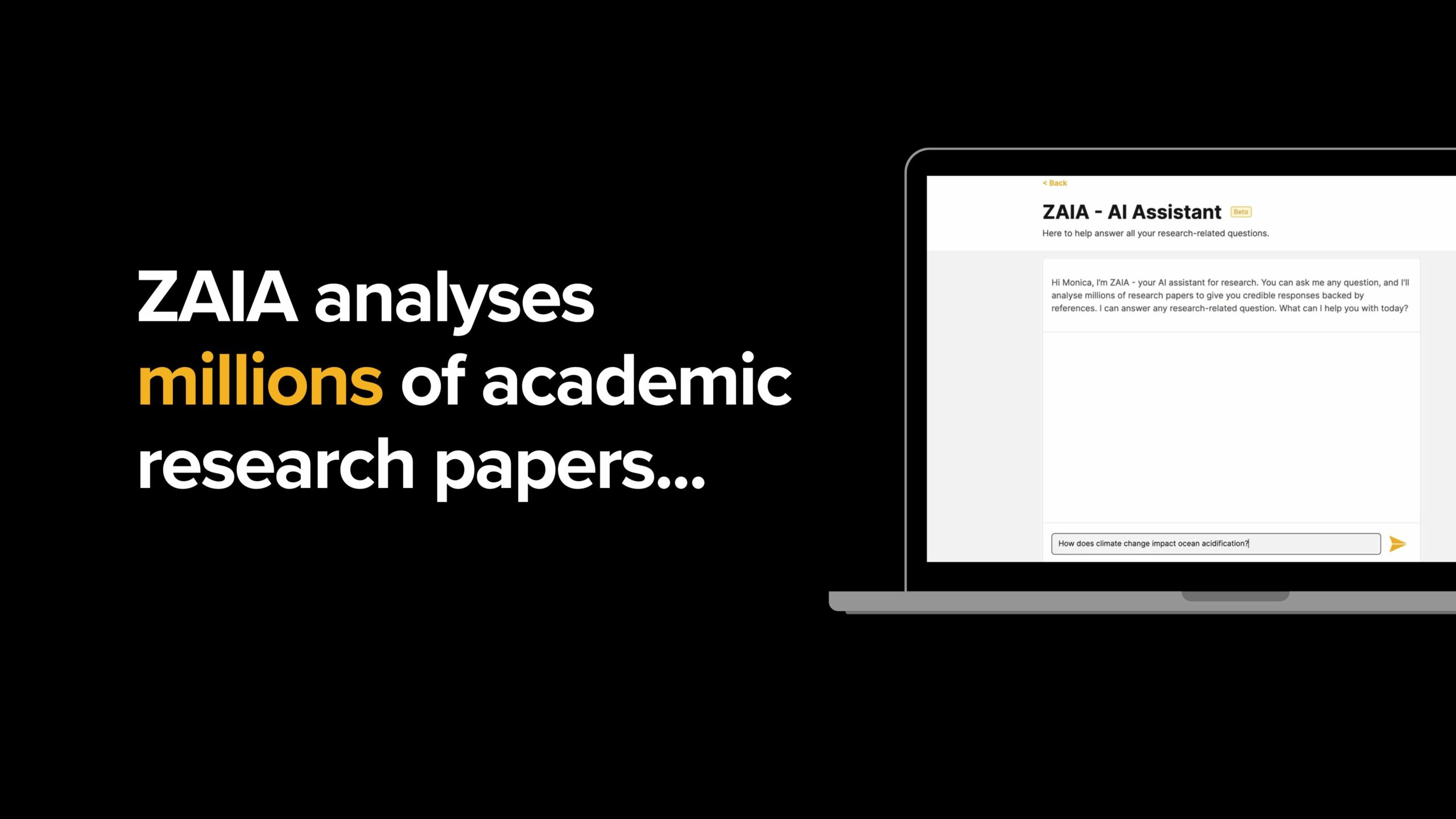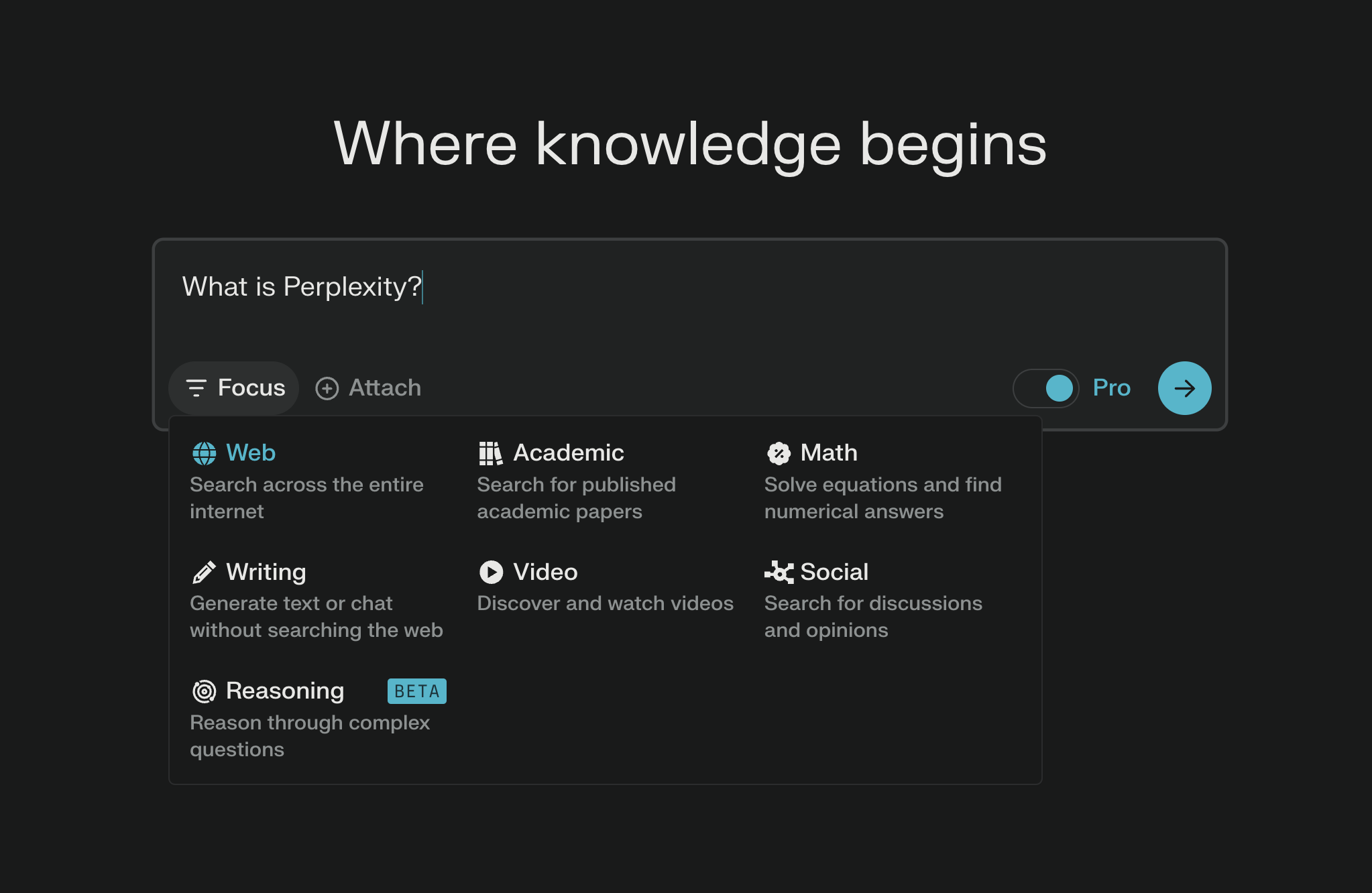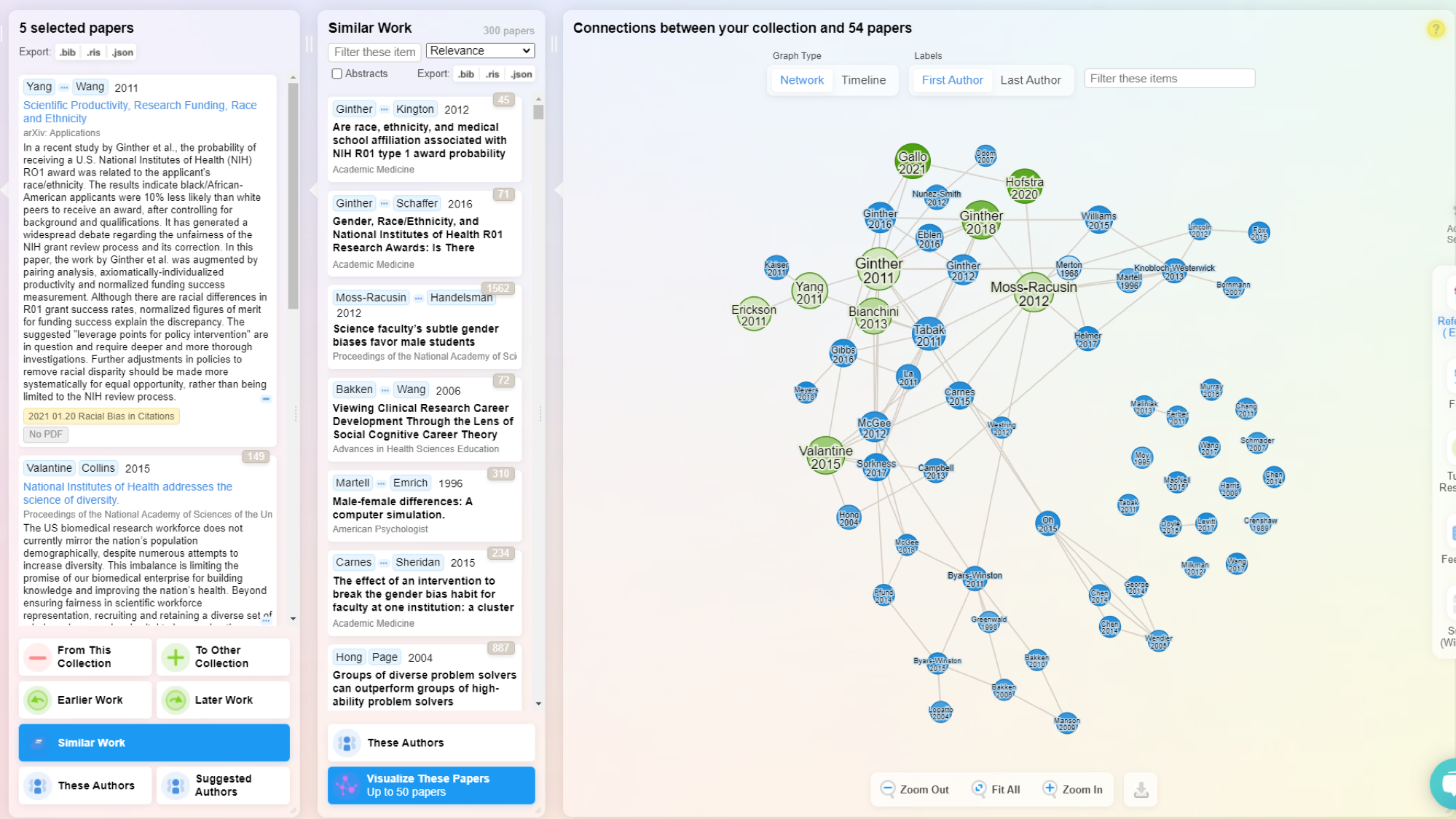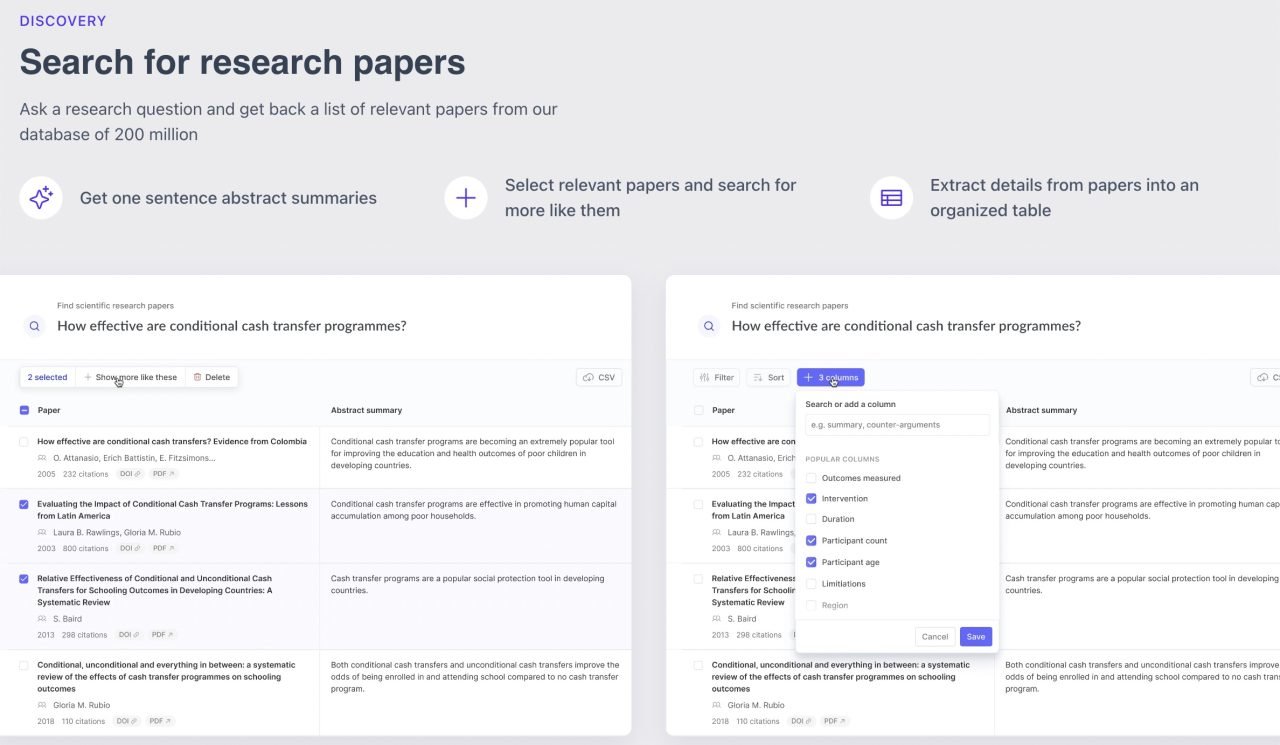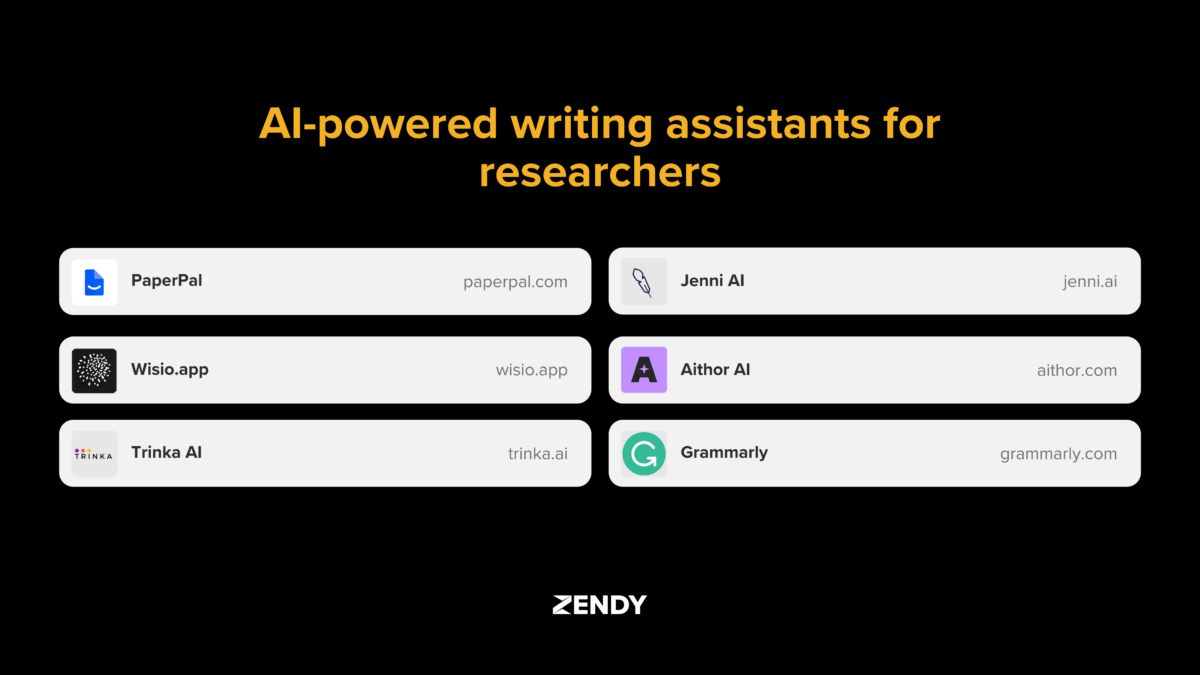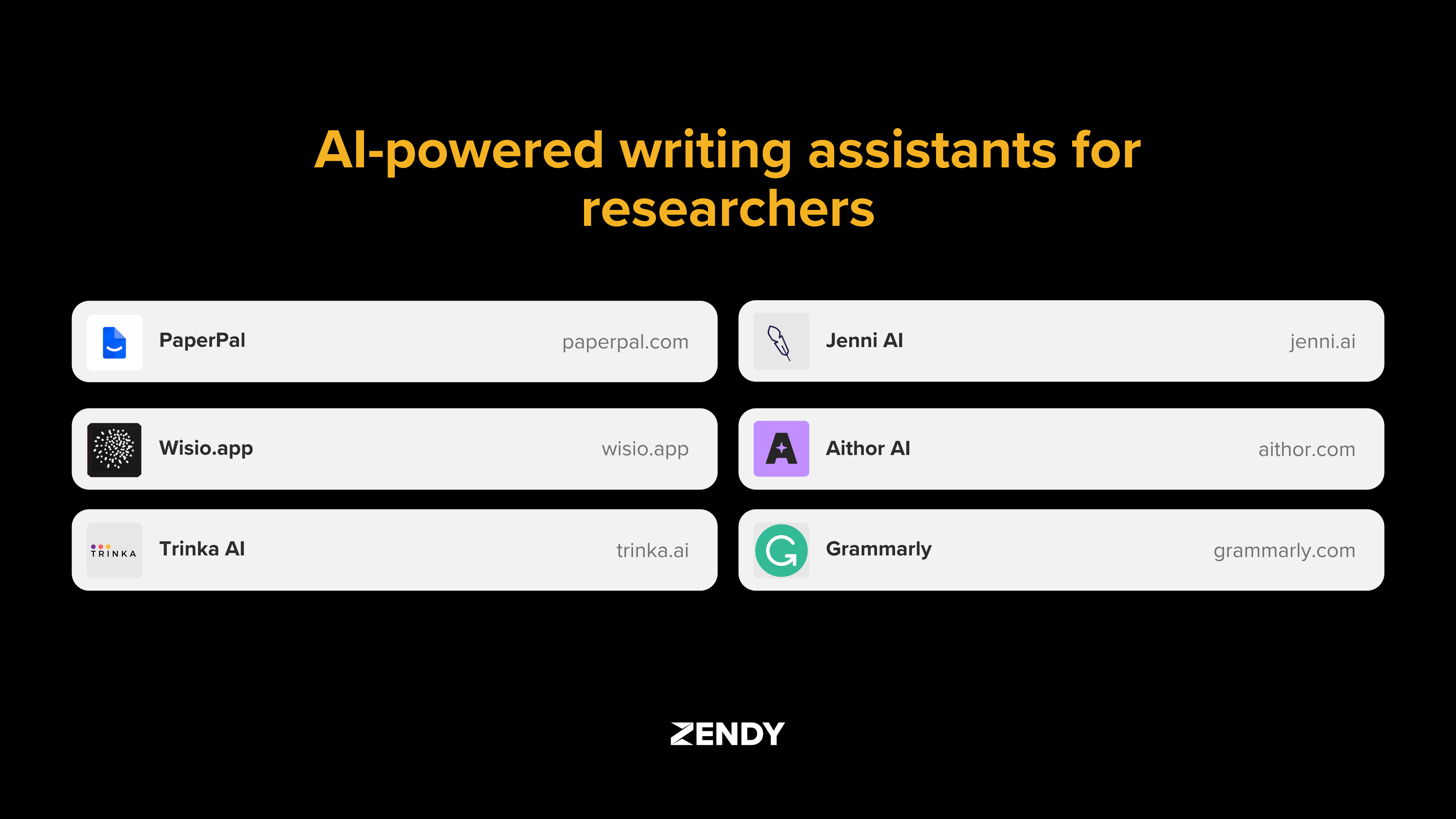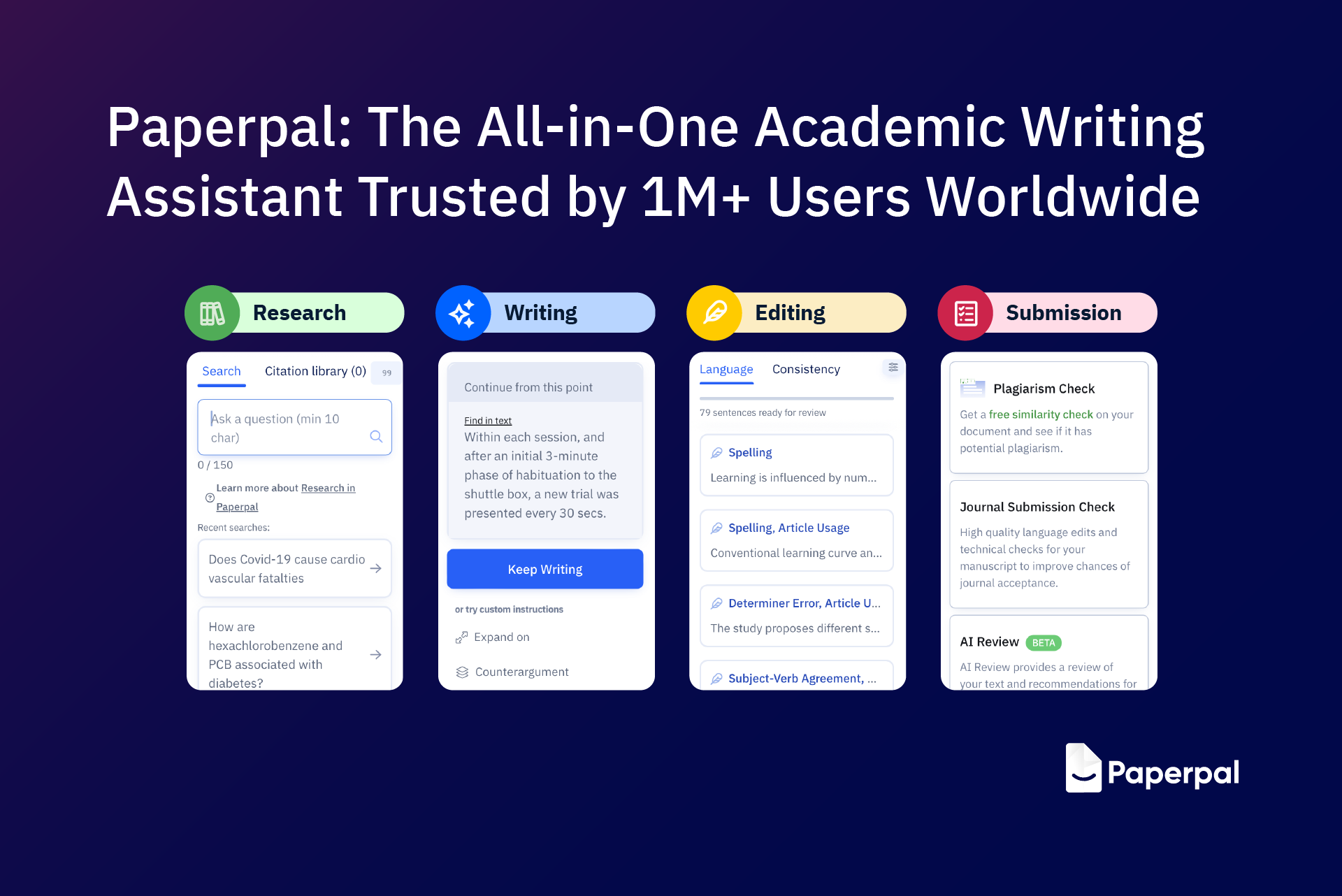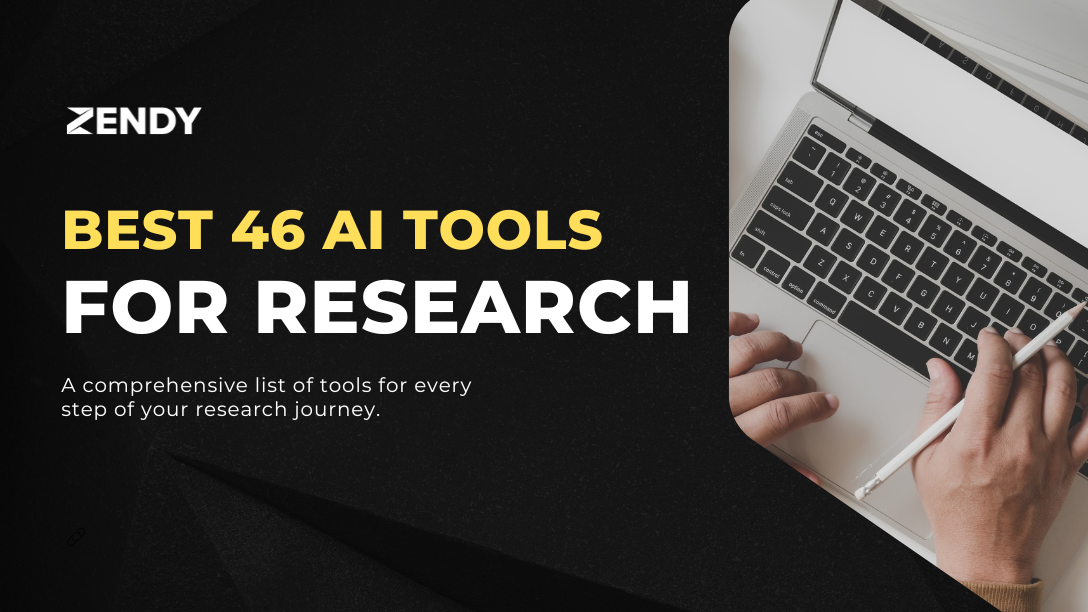
Artificial intelligence is changing how research is done. Today, researchers across subjects use AI tools to help them understand large amounts of data more efficiently.
Whether the data comes from surveys, experiments, or spreadsheets, AI can help organise and analyse it faster than traditional methods. This allows researchers to focus more on the meaning behind the data.
In this article, we introduce five AI tools that are commonly used in data analysis for research: Julius AI, Vizly, ChatGPT-4o, Polymer, and Qlik. Each tool plays a different role in the research process, depending on the type of data and goals of the project.
What is AI data analysis for research?
AI data analysis for research uses artificial intelligence to process and interpret research data. It combines machine learning, natural language processing, and automation to handle complex datasets that would take too long to analyse manually.
Unlike traditional analysis that requires step-by-step programming, AI tools can identify patterns and trends without explicit instructions. This makes data analysis more accessible to researchers without technical backgrounds.
- Time efficiency: AI processes large datasets in minutes rather than days
- Pattern recognition: Identifies relationships that might be missed in manual review
- Error reduction: Minimises human error in repetitive analysis tasks
- Accessibility: Makes advanced analysis available to non-technical researchers
For example, a researcher analysing survey responses can use AI to automatically categorise thousands of text answers instead of reading and coding each one individually.
How AI tools are changing research
In the past, researchers spent hours cleaning data, running statistical tests, and creating visualisations. AI tools now automate many of these tasks, freeing up time for thinking about what the results mean.
The volume of research data has grown exponentially in recent years. A single study might include millions of data points from sensors, surveys, or digital records. Traditional analysis methods struggle with this scale, while AI tools can process it efficiently.
AI data analysis also helps researchers spot patterns they might otherwise miss. For instance, machine learning algorithms can identify subtle relationships between variables that aren’t obvious in standard statistical tests.
These tools are especially valuable for interdisciplinary research where datasets combine different types of information such as text, numbers, and images.
How to choose the right AI tool in data analysis for research?
Selecting an appropriate AI tool depends on your research needs and technical comfort level. Consider what type of data you’re working with and what questions you’re trying to answer.
For text-heavy research like literature reviews, tools with strong natural language processing capabilities work best. For numerical data analysis, look for tools that offer statistical modelling and visualisation features.
The learning curve varies between platforms. Some use conversational interfaces where you can ask questions in plain language, while others might require some familiarity with data concepts or programming.
Data privacy is another important consideration, especially when working with sensitive information. Check whether the tool stores your data on their servers and what security measures they have in place.
5 AI tools in data analysis for research
Julius AI

Julius AI works as an AI data analyst that understands questions in everyday language. You can upload spreadsheets or datasets and then ask questions like “What trends do you see?” or “Summarise the key findings.”
This conversational approach makes data analysis accessible to researchers without technical backgrounds. The platform handles data cleaning, visualisation, and statistical testing automatically.
- Natural language queries: Ask questions about your data in plain English
- Automated insights: Identifies patterns and outliers without manual analysis
- Visual reporting: Creates charts and graphs based on your questions
- Collaborative features: Allow teams to work with the same dataset
Julius AI works well for exploratory data analysis and preliminary research. It helps you understand what’s in your data before deciding on more specific analyses.
Vizly

Vizly focuses on turning research data into clear visualisations. The platform uses AI to suggest the most effective ways to display your information based on the data structure.
In addition, Vizly automatically generates charts, graphs, and dashboards. You can then refine these visualisations through a simple drag-and-drop interface.
- AI-powered suggestions: Recommends appropriate chart types for your data
- Interactive dashboards: Create linked visualisations that update in real time
- No-code interface: Builds complex visualisations without programming
- Presentation tools: Exports publication-ready graphics for papers and presentations
Vizly is particularly useful for communicating research findings to non-technical audiences and creating visuals for publications or presentations.
ChatGPT-4o
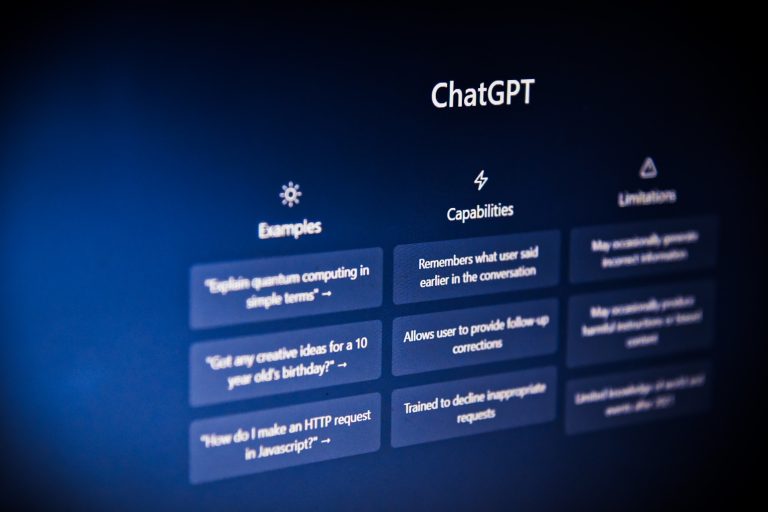
ChatGPT-4o serves as a versatile research assistant that can analyse multiple types of data. You can use it to summarise academic papers, generate code for data analysis, or interpret results.
Unlike specialised data analysis for research tools, ChatGPT-4o can switch between different tasks and data formats. It understands both text and numbers, making it useful for mixed-method research.
- Literature analysis: Summarises research papers and identifies key concepts
- Code generation: Creates analysis scripts in Python, R, and other languages
- Result interpretation: Explains statistical findings in plain language
- Multimodal capabilities: Works with text, tables, and images
ChatGPT-4o helps you with various stages of the research process, from literature review to data analysis and writing. However, its outputs should be verified for accuracy in academic contexts.
Polymer

Polymer transforms spreadsheets into interactive dashboards without requiring any coding. Upload your data, and the platform automatically creates a searchable, filterable interface.
This AI tool, specialised in data analysis for research, is helpful for survey data or experimental results that need to be explored from multiple angles. The AI identifies data types and relationships, then builds appropriate visualisations.
- One-click dashboards: Converts spreadsheets to interactive displays instantly
- Smart filtering: Creates automatic categories and filters based on data content
- Sharing capabilities: Allows secure sharing with collaborators or stakeholders
- Spreadsheet integration: Works directly with Excel and Google Sheets files
Polymer bridges the gap between raw data and meaningful insights, making it easier for research teams to explore their findings collaboratively.
Qlik

Qlik offers advanced analytics for complex research projects. Its associative data model connects information from multiple sources, allowing you to see relationships across different datasets.
Unlike simpler tools, Qlik includes machine learning capabilities for predictive analysis and pattern recognition. It’s designed for researchers working with large, complex datasets who need sophisticated analysis options.
- Associative analytics: Reveals connections between different data sources
- Predictive modelling: Uses machine learning for forecasting and prediction
- Data integration: Combines information from databases, spreadsheets, and apps
- Enterprise features: Supports large-scale research with security and governance
Qlik requires more technical knowledge than other AI tools in data analysis for research on this blog, but it offers greater analytical power for complex research questions.
Comparison of AI Data Analysis Tools:
| Tool | Best For | Key Strength | Learning Curve | Cost |
| Julius AI | Conversational analysis | Natural language interface | Low | Subscription |
| Vizly | Data visualization | Automated chart creation | Low | Freemium |
| ChatGPT-4o | Versatile assistance | Handles multiple data types | Low-Medium | Subscription |
| Polymer | Interactive dashboards | No-code spreadsheet analysis | Low | Freemium |
| Qlik | Complex data projects | Advanced analytics capabilities | Medium-High | Enterprise |
Challenges and practical tips for implementation
Data quality considerations
The quality of your data directly affects the accuracy of AI analysis. Common issues include missing values, inconsistent formatting, and outliers that can skew results.
Before using AI tools, take time to clean your dataset by checking for errors and standardising formats. Many AI platforms include data cleaning features, but reviewing the data yourself helps you understand its limitations.
For survey data, look for incomplete responses or inconsistent scales. With numerical data, check for outliers or impossible values that might indicate collection errors.
Privacy and ethical considerations
Research often involves sensitive information that requires careful handling. When using AI tools, consider where your data is stored and who has access to it.
Many platforms offer different privacy options, from fully cloud-based processing to local analysis that keeps data on your own computer. For highly sensitive research, look for tools that provide local processing or strong encryption.
Also, consider whether your research requires ethics approval for data analysis methods. Some institutions have specific guidelines about using AI tools with human subject data.
Integration with research workflows
AI tools work best when they fit naturally into your existing research process. Consider how the tool connects with other software you use, such as reference managers or statistical packages.
Look for platforms that support common file formats like CSV, Excel, or JSON. Some tools also offer direct integration with academic databases or reference managers like Zotero or Mendeley.
For collaborative research, choose tools that allow team members to work together on the same dataset with appropriate access controls.
Empower your research with intelligent data analysis
AI tools are making advanced data analysis more accessible to researchers across disciplines. These platforms handle tasks that once required specialised training, allowing more people to work effectively with complex data.
By automating routine analysis tasks, these tools free up time for the creative and interpretive work that drives research forward. Researchers can focus on asking questions and developing theories rather than managing spreadsheets.
The field continues to evolve, with new capabilities emerging regularly. Future developments will likely include more specialised tools for specific research domains and better integration with the academic publishing process.
Zendy’s AI-powered research library complements these analysis tools by providing access to scholarly literature that informs research questions and contexts. Together, these resources help researchers work more efficiently and produce higher-quality results.
FAQs about AI research tools
How do AI tools protect sensitive research data?
Most AI research tools offer security features like encryption and access controls. Some platforms process data locally on your device rather than sending it to external servers. Before uploading sensitive information, review the tool’s privacy policy and security certifications to ensure they meet your institution’s requirements.
Do I need coding experience to use these AI analysis tools?
Tools like Julius AI, Vizly, and Polymer are designed for researchers without coding skills. They use visual interfaces and natural language processing so you can analyse data through conversation or point-and-click actions. More advanced platforms like Qlik offer both code-free options and features for users with programming experience.
Can these AI tools handle specialised research datasets?
These platforms work with many types of research data, though their capabilities vary. Julius AI and ChatGPT-4o handle text data well, making them useful for qualitative research. Vizly and Polymer excel with structured numerical data from experiments or surveys. Qlik works best with complex, multi-source datasets common in fields like public health or economics.
How accurate are the insights generated by these AI tools?
AI data analysis for research tools provide valuable starting points for analysis, but researchers should verify important findings. The accuracy depends on data quality, appropriate tool selection, and correct interpretation of results. These platforms help identify patterns and generate hypotheses, but critical thinking remains essential for drawing valid research conclusions.

